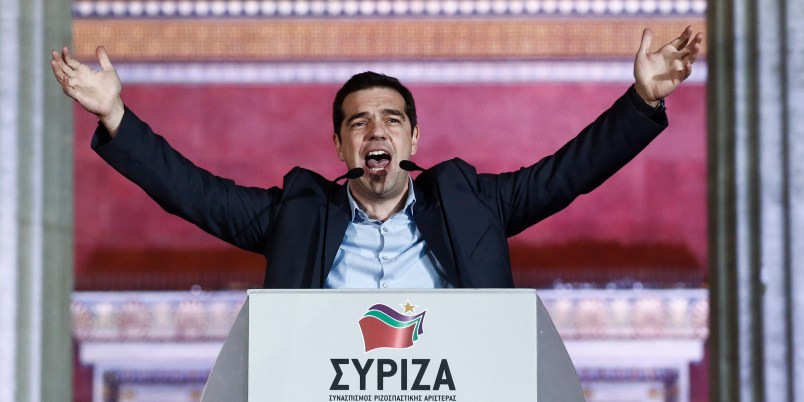ATHENS, Greece (AP) — Signs that Greece and its European creditors are open to compromise boosted market hopes on Friday that the sides can reach a deal to save the country from bankruptcy. But any agreement will likely take time, with both sides pressing hard for concessions.
After a turbulent week, in which investors feared Athens’ demands to rewrite its bailout terms would result in an impasse that could push Greece out of the euro, markets were reassured by leaders’ promises to talk.
The main Athens stock index rose 4.5 percent in late trading while the Stoxx 50 index of eurozone shares was 1 percent higher.
“I think there is the will for an agreement,” Greece’s top government aide and cabinet member Nikos Pappas said in a radio interview.
How long that might take is unclear, though Greece will need some sort of deal by Feb. 28, after which its bailout program ends. Without support, it faces the prospect of bankruptcy and an exit from the euro — a worst-case scenario both sides want to avoid as it would devastate Greece’s economy and roil global markets.
Prime Minister Alexis Tsipras’ new left-wing government held its first meetings this week with European Union leaders and finance ministers, sticking to its position that the bailout deal should be renegotiated.
Jeroen Dijsselbloem, the head of the eurogroup of finance ministers, will chair another meeting Monday. He agreed to immediately restart technical-level talks between Athens and lenders, but cautioned that finding a solution palatable to all would not be easy.
“It is still very complicated because it is always the case that you can only spend money if you have it and they want a lot but have very little money and that’s a problem for Greece,” he said.
Germany also played down chances of a swift agreement.
“It is clear that we face difficult talks but we are very, very anxious to find a common solution,” German Finance Ministry spokesman Martin Jaeger said.
Greece’s new left-wing government is pressing for a short-term “bridge” agreement with eurozone lenders and a longer-term debt relief deal later this year. Germany and other lenders insist Tsipras should commit to the existing program.
“Don’t be fooled by the posturing and high-drama playing out in Europe this week — a deal for Greece will likely be found, but it will resemble old wine in a new bottle,” said Megan Greene, chief economist at Manulife Asset Management.
“The two sides will probably meet somewhere in the middle,” she said. That could consist of limited financing for Greece over the next few months in exchange for measures on which Greece and the creditors can agree, such as institutional reform and cracking down on tax evasion
Tsipras’ government argues that a change of course is vital for Greece after a six-year recession and dramatic rise in poverty, which he blames on the budget austerity measures creditors have demanded. Those measures have largely focused on reducing debt, something that has come at the expense of growth.
Greece’s statistics agency reported Friday that the economy grew by 0.8 percent last year after collapsing by about 25 percent since the start of the financial crisis.
On Sunday, supporters of a new debt deal are planning dozens of demonstrations in Greece and European cities, an initiative the Greek government has enthusiastically welcomed.
“To see people out in the street supporting our position was very important … and it does get noticed,” the government’s Pappas said. “It was crucial for us.”
___
Pylas reported from Brussels. Mike Corder in Amsterdam, and Geir Moulson in Berlin contributed to this report.
Copyright 2015 The Associated Press. All rights reserved. This material may not be published, broadcast, rewritten or redistributed.









